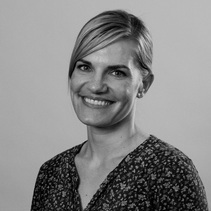Growth vs. Fixed-Minded
The Teacher's Role
Impact on Student Achievement
To this day if someone asks me for a book recommendation, I smile and say, “Read Mindset by Carol Dweck.”
Bryn Chighizola, M.A. Research Associate

BAKER • EVALUATION • RESEARCH • CONSULTING
The BERC Group is an independent evaluation, research, and consulting firm focused on putting research into practice. Our mission is to skillfully gather, analyze, and use data to inform, inspire, and improve all learning organizations.
|
I have a vivid memory of the first time I heard about Mindset. It was orientation day at graduate school and I asked one of the alumni what suggestions she had to prepare for school. She took one second to think, smiled, and said, “Read Mindset by Carol Dweck.” I did just that. Mindset changed my understanding of how people learn and, ultimately, of human potential. Growth vs. Fixed-Minded In 2006, Stanford professor Carol Dweck published a groundbreaking book about the concept of an individual’s belief in the malleability of their intelligence, called Mindset: The New Psychology of Success. Theories of motivation, attribution, and intelligence provided the backbone of Dweck’s research. Based on implicit theories of intelligence, research shows individuals tends to believe intelligence is either innate (entity theory) and unable to change, or malleable (incremental theory) and able to develop and grow. This divide in beliefs is similar to the age-old nature versus nurture debate, except research now shows intelligence is in fact fluid and a growth mindset provides benefits in all facets of an individual’s life, including personal well-being, relationships, academic achievement, and employee effectiveness. Having a growth mindset is particularly impactful when facing a challenge or failure. An individual with a fixed mindset tends to see challenges or failure as past their abilities, and they would rather give up or stop because they do not want someone else to see their shortcomings. Furthermore, being fix minded means, you view your abilities as internal, and a failure is a reflection of low intelligence. Whereas, a growth minded individual views a challenge or failure as an opportunity to learn something new and eventually build upon their abilities. Failure is not intrinsic. If anything, it provides the platform to target their future development. The Teacher's Role The good news is that, over time, individuals can change from fixed to growth minded and teachers can play an active role. Start simply by thinking about the way teachers give praise. For example, when a student gets a good grade on her test, a teacher could respond by saying, “Wow, you are so smart!” or “Nice work, it looks like you put in great effort.” One key to developing a growth mindset is to provide process praise versus trait praise. Process praise highlights the strategies and effort an individual puts into completing something, whereas trait praise focuses on a perceived direct ability. When thinking about praise, keep this strategy in mind: praise the process, not the person. Impact on Student Achievement Student mindset has consistently shown an impact on student achievement with lasting improvements over time and particularly during challenging or difficult transition periods. For example, in 2007, Dweck found student achievement on math grades for junior high students varied significantly depending on mindset. Over two years, 7th-8th grade students with a growth mindset scored +1 Standard Deviation (SD) above the mean, whereas students with a fixed mindset scored - 1SD below the mean. To this day if someone asks me for a book recommendation, I smile and say, “Read Mindset by Carol Dweck.” Interested in learning more about how growth mindset impacts your students? Bryn Chighizola, M.A. Research Associate  Bryn holds a Masters Degree in Industrial/Organizational Psychology from Seattle Pacific University. Her research interests involve program evaluation and team development. Bryn has conducted consultation work in a variety of industries including MacDonald Miller, The Downtown Emergency Services Center, and Harborview Medical Center. She has worked with The BERC Group for three years. Her professional experiences include being a member of the Washington State Leadership Academy Evaluation Team, leading School and Classroom Practice Studies, writing proposals, and providing evaluation planning for various projects. Bryn is passionate about providing a systemic approach to evaluations and developing measurable outcomes to provide clients with a clear path for continued development.
0 Comments
Your comment will be posted after it is approved.
Leave a Reply. |
The BERC Blog
SubscribeSign up to get our posts in your inbox.
Recent Articles
Categories
All
Archives
December 2022
|
